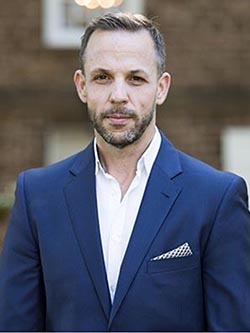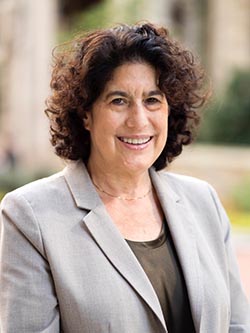Panel 1: Theory, Methods, and Metrics in Provider-Patient Communication

Dr. Matthew Matsaganis (pronouns: he, him) is an Associate Professor of Communication at Rutgers’ School of Communication & Information (SC&I). His research focuses on health communication and specifically on the role of communication as a social determinant of health disparities in urban communities, but also on how the wellbeing of neighborhoods can be transformed through communication-centered interventions. In this context, he also investigates how ethnic media can serve critical information needs—including health needs—of immigrant and ethnic communities in the digital age. In 2018, he was a Fulbright Scholar in Athens, Greece. He continues to conduct research in Greece, collaborating with local communities in the metropolitan region of Athens, Greek universities, and the National Center for Social Research. On a related note, Matthew is a Co-Lead of Rutgers University’s IAPP-Greece initiative (https://iapp-greece.rutgers.edu/). His research has been supported by grants from U.S. federal funding agencies and private foundations. He is co-author or co-editor of four books and multiple peer-reviewed publications. Matthew currently serves as Ph.D. Program Coordinator for the Department of Communication at SC&I, and he is a Core Member of Rutgers’ Global Health Institute.

Dr. Rafael E. Pérez-Figueroa, Associate Professor and Associate Dean of Community Engagement and Public Health Practice, studies the mechanisms through which historically and contemporary under-resourced populations experience health inequities. He does this by engaging in theoretically driven research that seeks to disentangle the effects of different social determinants of health on the outcomes of these populations. Most of his scholarly work focuses on public health issues related to HIV/AIDS prevention and care, substance use and abuse, harm reduction, mental health, and healthcare utilization. He uses different community-engaged approaches to study these issues, focusing on the interplay between behavioral, social, structural, and environmental factors that influence health systems in which inequities are embedded. He emphasizes on conducting community-engaged research work and public health practice that directly aligns to the translation, diffusion, and implementation of evidence-based health strategies into community practice and policies. He is a fellow of the Robert Wood Johnson Foundation Interdisciplinary Research Leaders Program, the Columbia University Community-Based Participatory Research Program, the National Hispanic Science Network on Drug Abuse, and the New York University Postdoctoral and Transition Program for Academic Diversity.

Tamara Nelson, PhD, MPH is an Assistant Professor in the Department of Psychology at Rutgers University Camden. She joined the faculty in August of 2020 and is a proud alumna of Rutgers University, New Brunswick. Utilizing her training in clinical psychology and public health, Dr. Nelson’s research centers Black women’s mental health and mental health help-seeking. Additionally, her scholarship focuses on issues relevant to perinatal mental health equity utilizing community-engaged approaches for preventing perinatal depression among Black women. Dr. Nelson has worked extensively in a wide variety of community mental health settings as a scholar, clinician, and consultant.

Dr. Laura A. Siminoff is the Laura H. Carnell Professor of Public Health and served as the founding dean of the Temple University College of Public Health from 2014 -2022. Prior to joining Temple University, Dr. Siminoff held faculty positions of rising responsibility at the University of Pittsburgh, Case Western Reserve University, and the Virginia Commonwealth University. She is an internationally recognized leader in health communication, especially in the field of health care decision making, development of decision tools and qualitative and multi-method research tools. Her work has focused on dyadic communication between clinicians and patients and, most recently, family communication within the context of cancer care. She has conducted seminal research in organ and tissue donation communication and decision making that has impacted national policy. Dr. Siminoff has received numerous awards and honors, published over 200 articles and book chapters, and has been awarded over $43 million dollars in funding from NIH, HRSA and the Department of Defense. Her current passion is to focus on training the next generation of health communication researchers and to focus her research on interventions that are sustainable.
